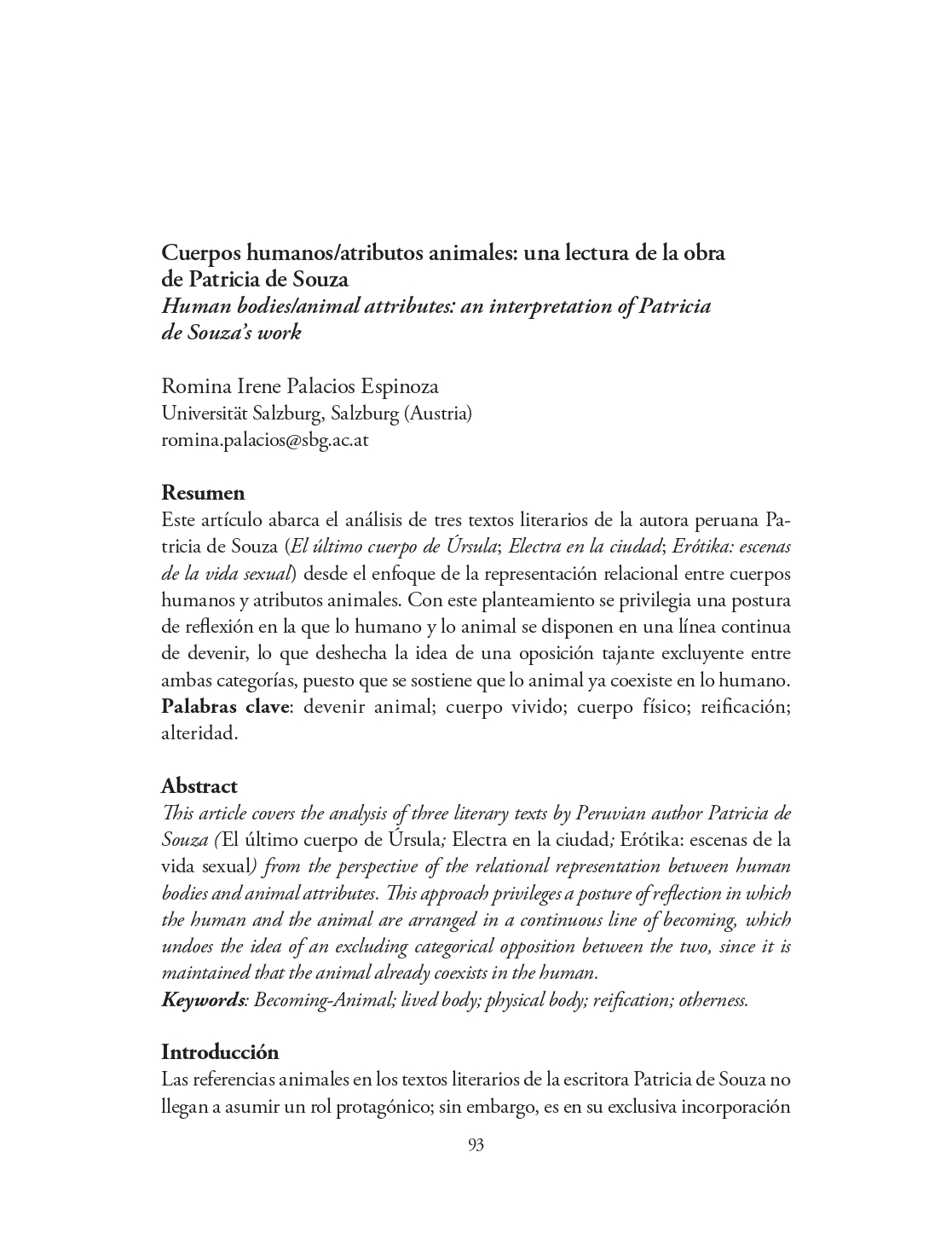Abstract
This article covers the analysis of three literary texts by Peruvian author Patricia de Souza (El último cuerpo de Úrsula; Electra en la ciudad; Erótika: escenas de la vida sexual) from the perspective of the relational representation between human bodies and animal attributes. This approach privileges a posture of reflection in which the human and the animal are arranged in a continuous line of becoming, which undoes the idea of an excluding categorical opposition between the two, since it is maintained that the animal already coexists in the human.

This work is licensed under a Creative Commons Attribution 4.0 International License.
Copyright (c) 2019 Diseminaciones

